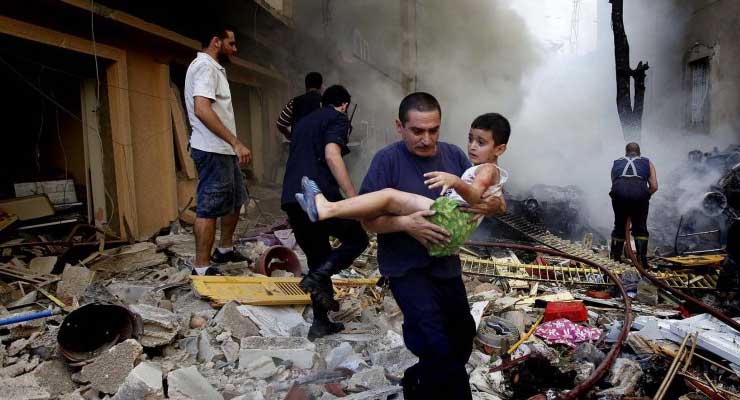
As the Syrian Civil War continues into its 4th year of conflict, the United Nation’s Syrian envoy met with rebel opposition leaders for the first time since the beginning of the conflict in March of 2011 when citizens started protesting against what they see as a the corrupt Presidency of Bashar Al- Assad. The envoy met with rebel leaders to discuss possible outcomes of the civil war and what kind of future Syria should have following the conclusion, and for many hopefully, the ouster of acting President Bashar al- Assad.
“We showed him (Steffan De Mistura, head of the envoy to Syria) our road map, our vision, how the Southern Front sees the transitional period without Assad” Southern Front Spokesman Issam al- Rayyes said in an interview following the meeting on Tuesday, July 14th. The Southern Front is one of the many opposition groups that have joined the fight against the Assad regime since the Arab Spring’s influence reached Syria in 2011.
The Southern Front is also one of the many moderate groups who have joined in the fighting and have received Western support not only by fighting the Assad regime but also by fighting the extremist groups who have also joined in, like the 1) Islamic Front, 2) Jabhat Al- Nusra, 3) The Islamic State of Iraq and Syria.
“There are sufficient pragmatic voices among them (opposition groups) who say we have to work with the U.N at some stage. They want some sort of guarantees that any political process that he (Steffan De Mistura) undertakes would involve Bashar al- Assad stepping down” an anonymous source said regarding the meeting between the opposition leaders and the UN envoy.
However, despite all of the optimism regarding the possible end game of the civil war and the ouster of President Assad, there is still concern as to who controls the fighting as the situation is moving at a fluent pace and it has been difficult to determine who has had the upper hand as both sides of fighting have claimed the advantage.
Representatives from Mr. De Mistura’s office put out a statement regarding Syria which read that the office wishes to have “proposals on a way forward to support Syrian parties in their search for a political solution to the conflict.”
Another crisis which that has been created because of the civil war has been the refugee situation which has left the continent of Europe struggling to deal with the crisis which has seen an estimated 3 to 4 million Syrians have to flee their homeland during the struggle and leaving the Southern European countries of Italy and Greece to cope with the crisis.
However, the United Nations proposed in March of 2015 a new pilot program which title is an “orderly relocation” of refugees from the heavily burdened Southern European countries to the Northern European countries, primarily, Norway and Finland as Finland has received 554 refugees so far which places it last on the continent in terms of Syrian refugees and Norway receiving 2,935 refugees.
“More than two thirds of those (refugees) disembarked in Italy moved on without fingerprinting or proper identification. At a time of increased security concerns over movements from Libya, the situation is abnormal. Not all those saying that they are Syrians or Palestinians are Syrians or Palestinians. And not all of them are refugees” Vincent Cochetel said, who is the European Director of the UNHCR.
With the latest numbers available, Germany has accepted the most refugees on the European continent with 59,529 and Sweden coming in second at 53,750. Italy has received 1,967 and Greece 1,810. Although the countries of Greece and Italy have only received around 2,000 refugees respectively, they have been struggling in dealing with their countries being used an entrance point for the refugees who hope to move on to the bigger countries of Europe.
Ultimately, it would be beneficial for all sides of the conflict to seek mediation for this current crisis and to come to an agreement which would end the war and allow the refugees to return to a Syria which is peaceful, stable and has a sense of normalcy.
Leave a Reply